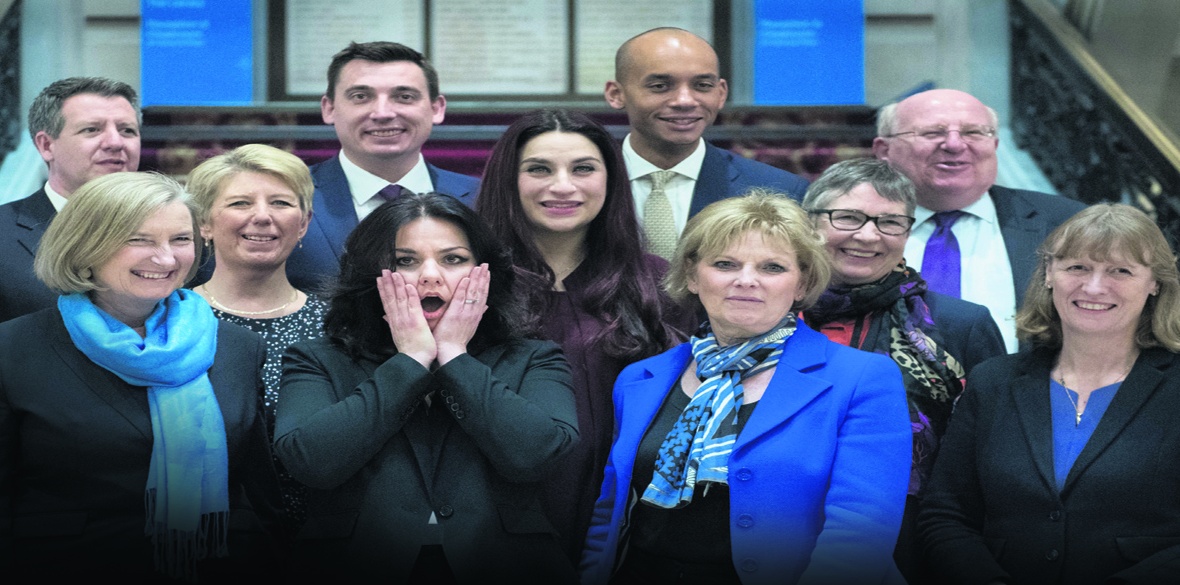This is the last article you can read this month
You can read more article this month
You can read more articles this month
Sorry your limit is up for this month
Reset on:
Please help support the Morning Star by subscribing here
A FEW days after the Independent Group (TIG) of MPs formed in the Commons, the Liberal Democrat strategist Mark Pack tweeted “who will be TIG’s Bill Rodgers?” It was an interesting question.
Despite having spent a year in formation with meetings at luxury hotels the breakaway MPs appeared without a proper name, no policies, no membership and no structure. Their cheerleaders in the media argue all these will appear over time.
The SDP which was formed in 1981 was a rather different and more substantial matter. On its founding day the Limehouse Declaration was published outlining its basic principles. Its roots went back much further than that though.
The fourth member of the SDP’s Gang of Four, Bill Rodgers, was central. He had a long history in the Labour Party. He had been general secretary of the Fabian Society from 1953 to 1960. When Hugh Gaitskell became leader and after Labour lost the 1959 general election, Rodgers was one of those who organised the Labour right and the successful effort to stop the party from committing to banning the bomb.
Central to that was the formation of the Campaign for Democratic Socialism. It opened an office in central London in January 1961 and gathered support amongst activists in local Labour Parties and trade unions. That allowed it in some areas to appoint regional organisers and hold conferences of supporters. Rodgers says in his biography, Fourth Among Equals, that small donations funded the CDS and denies that any CIA money was involved. A significant grassroots network was developed.
When Labour won the 1964 general election with Harold Wilson as a centre-left prime minister Rodgers says the CDS was shut down.
Fast forward to the foundation of the SDP in 1981. Where did its organisation come from? Rodgers records that he was able to rely on the CDS network to provide a good deal of it.
TIG have none of this and one suspects they don’t particularly want it. The subtext of Lib Dem Mark Pack’s tweet was of course that they would need to rely on Liberal Democrat organisation. Yet after the debacle of the coalition government this exists only patchily. Its true membership is now up, but these appear to be mainly new members, not returning experienced activists.
Alternatively TIG may have in mind Emmanuel Macron’s En Marche group that did successfully win French elections without any obvious policies. Yet it relied in part on French Socialist Party activists and its support has been in serious decline, after its “status quo” perspective met the harsh realities of life for many in France.
The world has changed since 1981, although one wonders if the TIG have grasped that.
Then thanks above all to Rodgers’s CDS background, the SDP had an organisation that was probably at least equal to that of Michael Foot’s Labour Party. In 2019 Jeremy Corbyn’s Labour is the largest socialist party in Europe, with more members than all other UK political parties combined.
EP Thompson writing about the rise of socialist organisation in the 1880s noted that it was not formed in head offices in Westminster but in those “shadowy parts” known as the provinces. His point was that political movements come from the bottom up. They aren’t and cannot just be imposed from Parliament.
No doubt the Independent Group will continue to be a phenomenon in some parts of the media for a while. But at the grassroots of politics where real change takes place matters will look very different.
Keith Flett is a socialist historian.










